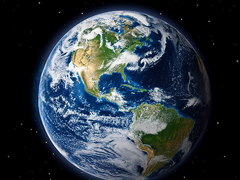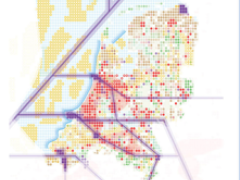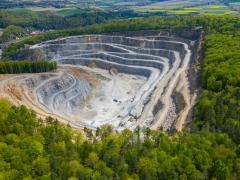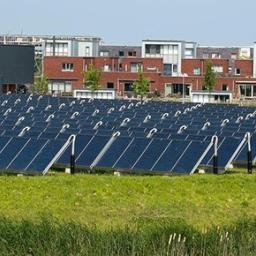Scarcity in a Sea of Plenty? Global Resource Scarcities and Policies in the European Union and the Netherlands
Current high prices of food, oil and many other resources are indications of increasing scarcity. This scarcity, however, has little to do with stock depletion. Badly functioning markets and wrong policy reactions play a particularly important role. For most resources, global stocks will be sufficient to meet increasing demand, over the coming decades. However, these stocks are not equally distributed over the world; they tend to be located in a limited number of countries. This causes an increasing European dependency on imports, which, in turn, feeds the fear of a decrease in security of supply.
Sharply increasing demand often important cause of high resource prices
The causes of the current high resource prices are varied. Suppliers often struggle to keep up with the dramatic growth in demand from emerging economies. A new mine, for example, takes several years to open. Thus, scarcity is created on the resource market, which leads to high and fluctuating prices. Another factor that drives up prices is the increasing monopoly power of suppliers.The PBL analysis shows that a scarcity of one resource often is connected to that of another, increasing it or even causing it. Thus, high energy prices lead to high food prices, as transport and fertilisers become more expensive. High oil prices increase the appeal of biofuels, and a subsequent increasing demand for corn and grain leads to higher food prices and additional food scarcity. Moreover, a scarcity of fossil fuels may cause a shift towards electric vehicles. However, the batteries for these vehicles require special metals, such as lithium. This metal is only found, globally, at a small number of locations. Therefore, the dependency on oil may be replaced by a dependency on lithium.
Government policies in resource-exporting countries may create or increase scarcity
Scarcities may be increased further by government policies in ‘stock countries’. Argentinian restrictions on the export of grains in reaction to high food prices, for example, have led to higher grain prices in the rest of the world. And Chinese export restrictions on rare earth elements have caused new and clean technologies that require such elements to become more expensive for Europe.
Joint and integral approach is needed, the EU may play an important role
The high resource prices and large price fluctuations are expected to occur also in the coming years. This will have a great and negative influence in many developing countries. In these countries, high energy and food prices will lead to hunger and poverty, as – although resource-exporting countries benefit from such high prices – these benefits only rarely are passed on to their populations. Furthermore, in developed economies, a fear of increasing dependency on countries such as China and Russia prevails. Both the Netherlands and Europe as a whole appear insufficiently prepared for a future in which resources become more expensive and concerns over security of supply will increase. An integral approach is important. The policy on biofuels has demonstrated that a concentration on a single scarcity can lead to powerful negative side effects. In addition, competition over resources should not be at the expense of the environment or the poorest people. The EU may play a key role, geopolitically and in an economic sense, which makes it important for Europe to speak with one voice.
Authors
Specifications
- Publication title
- Scarcity in a Sea of Plenty? Global Resource Scarcities and Policies in the European Union and the Netherlands
- Publication date
- 14 March 2011
- Publication type
- Publication
- Publication language
- English
- Product number
- 267



